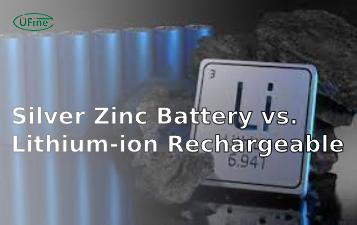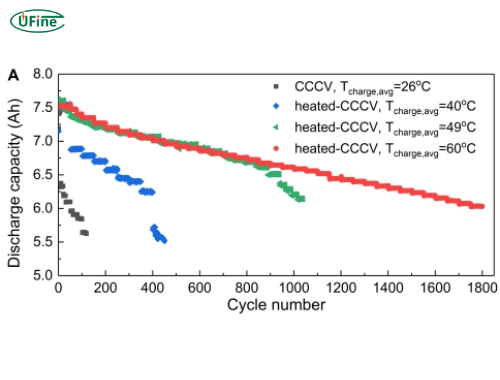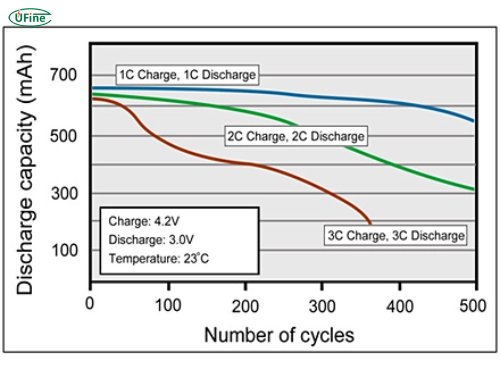
- Part 1. Understanding battery chemistry
- Part 2. What is battery fast charging?
- Part 3. The impact of fast charging on battery life
- Part 4. What are the differences Between fast charging and slow charging in battery degradation?
- Part 5. Factors influencing battery health
- Part 6. Best practices for battery care
- Part 7. Common myths about fast charging
- Part 8. FAQs
Does fast charging affect battery life? This question has become increasingly relevant as our reliance on smartphones, tablets, and electric vehicles grows. The convenience of fast charging allows us to power up our devices quickly, but it also raises concerns about the long-term health of our batteries. This article will explore the mechanics of fast charging, its effects on battery life, and the differences in battery degradation between fast and slow charging methods. We will also provide practical tips for maximizing battery health while enjoying the benefits of rapid charging.
Part 1. Understanding battery chemistry
To grasp the implications of fast charging, it’s essential to understand how batteries function. Most consumer electronics use lithium-ion batteries, which are favored for their high energy density and longevity.
- Lithium-Ion Basics: These batteries consist of an anode (often made from graphite), a cathode (typically lithium metal oxides), and an electrolyte that facilitates the movement of lithium ions. When charging, lithium ions migrate from the cathode to the anode, where they are stored until needed.
- Charging Process: The charging process involves complex electrochemical reactions. Lithium ions move back and forth between electrodes, generating heat—a crucial factor when considering fast charging.
Part 2. What is battery fast charging?
Fast charging refers to technologies that allow batteries to charge at a significantly higher rate than traditional methods. This is achieved through increased voltage and current levels.
Types of Fast Charging:
- Standard Fast Charging: Typically delivers between 10W and 25W, allowing for quicker recharge times without excessive heat.
- Super Fast Charging: This can exceed 50W, with some devices capable of reaching up to 150W or more, dramatically reducing charge times.
- Charging Protocols: Various protocols such as Qualcomm’s Quick Charge and USB Power Delivery enable devices to negotiate optimal power levels with chargers, enhancing efficiency and safety during fast charging sessions.
Fast Charging vs Slow Charging: Which is Better for your Lithium Battery?
Part 3. The impact of fast charging on battery life
The impact of fast charging on battery life is a nuanced topic. While many users worry about potential damage from rapid charging, research suggests that modern batteries are engineered to handle higher power levels effectively.
- Heat Generation: One of the primary concerns with fast charging is heat production. Excessive heat can accelerate battery degradation by causing physical changes within the battery’s chemistry. High temperatures can lead to increased resistance and reduced capacity over time.
- Studies on Battery Degradation: Research indicates that while heat is a concern, its impact may not be as detrimental as previously thought. For instance, a study involving over 13,000 Teslas showed no significant difference in range degradation between vehicles that frequently used fast chargers versus those that relied on standard chargers.
Part 4. What are the differences Between fast charging and slow charging in battery degradation?
Understanding how different charging methods affect battery degradation is crucial for making informed choices about device usage.
- Fast Charging Effects: Fast charging can increase battery wear due to higher temperatures generated during the process. This can result in a quicker decline in battery capacity over time compared to slower methods.
- Slow Charging Benefits: Conversely, slow charging is generally gentler on batteries. It minimizes heat generation and allows for a more controlled flow of energy into the battery, which can help maintain its health over a more extended period.
- Comparative Studies: Some studies suggest that while fast charging may accelerate degradation slightly, the difference may need to be more significant to deter users from utilizing this convenient option regularly. The trade-off between speed and longevity often comes from personal preference and usage patterns.
Part 5. Factors influencing battery health
Several external factors can influence how fast charging affects battery life:
- Temperature: Batteries perform optimally within specific temperature ranges. Extreme heat or cold can stress batteries during both charging and discharging cycles.
- Charge Levels: Fast charging at very low (below 10%) or very high (above 90%) charge levels can strain batteries. Keeping your device’s battery within the optimal range is generally recommended for better longevity.
- Battery Management Systems (BMS): Modern devices have advanced BMS that monitor temperature and charge cycles to optimize battery health during fast charging. These systems help mitigate risks associated with rapid power replenishment by adjusting power delivery based on real-time conditions.
Part 6. Best practices for battery care
To maximize battery life while enjoying the benefits of fast charging, consider these best practices:
- Avoid Frequent Fast Charging: Use fast chargers sparingly for emergencies or when you’re short on time. Regularly relying on them may lead to faster degradation.
- Charge During Optimal Conditions: Whenever possible, charge your device in moderate temperatures—ideally between 20°C (68°F) and 25°C (77°F)—to minimize heat buildup during charging sessions.
- Monitor Charge Levels: Try to keep your device’s battery between 20% and 80% charged whenever possible. This practice helps reduce stress on the battery and prolong its lifespan.
Part 7. Common myths about fast charging
Despite advancements in technology, misconceptions about fast charging persist:
Myth 1: Fast charging will permanently damage your battery.
- Reality: While excessive heat can degrade batteries faster, modern devices have protections to mitigate this risk effectively.
Myth 2: You should never use fast chargers.
- Reality: Using fast chargers occasionally is generally safe if done correctly and with compatible devices.
Part 8. FAQs
-
Does fast charging reduce battery lifespan?
While heat can contribute to degradation, modern batteries are designed to handle it better than older models. -
Is it safe to charge overnight using a fast charger?
Yes, your device has built-in safety features that manage heat and prevent overcharging. -
Can I use any charger for fast charging?
Not all chargers support fast charging; ensure your charger is compatible with your device’s specifications before use. -
Does ambient temperature affect fast charging?
Yes, extreme temperatures can negatively impact battery performance during rapid charging sessions; it’s best to charge in moderate conditions. -
Is slow charging better for my battery?
Slow charging is generally gentler on batteries, but properly used fast chargers occasionally will only partially harm modern lithium-ion cells.
Related Tags:
More Articles

What is the Difference Between Silver Zinc Battery vs. Lithium-ion Rechargeable?
Compare silver zinc and lithium-ion rechargeable batteries: energy density, cycle life, safety, cost, and uses in drones, medical devices, EVs, and electronics.
What are Watts and Watt Hours in Battery?
Understand watt vs watt-hour in batteries: key differences, how to calculate capacity, and why they matter. Includes free comparison table.
Best 10 Blood Pressure Monitor Battery Review: Finding the Most Reliable
Are you looking for a reliable Blood Pressure Monitor battery? Here is a complete guide with the top 10 best blood pressure monitor batteries.
Bluetooth Headphone Battery Guide: All You Need to Know
Maximize headphone battery life with expert tips! Learn how to charge, check, troubleshoot, and choose the best bluetooth headphone battery in 2025.
LiFePO4 Battery VS. Lithium-ion Polymer Battery: Which One Is Best?
Comprehensive comparison of LiFePO4 vs Lithium Ion Polymer batteries: energy density, safety, lifespan, cost. Find out which battery suits your needs in 2025.




